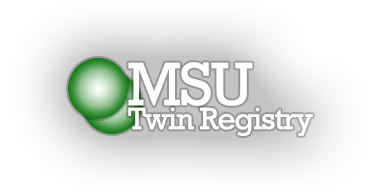Lab - Hormones and Behavior
Hormones and Behavior Lab
The primary aim of Dr. Klump's Hormones and Behavior lab is to examine developmental differences in genetic, environmental, and neurobiological influences on internalizing (e.g., depression) and externalizing (e.g., acting out behaviors) symptoms. The lab assesses twins from several developmental stages to obtain that goal. The lifespan perspective ensures that genetic, environmental, and biological risk factors specific to particular developmental periods are identified and examined for their relevance to internalized and externalized behaviors. The lab currently is running a study that investigates systematic changes in ovarian hormones (e.g., estrogen and progesterone) and behavior during puberty in female twins ages 8-15 years. The aim of this study is to examine whether associations between ovarian hormones, mood, and eating habits and behavior are influenced by genes.
Requirements include:
1. At least a 3.5 GPA
2. A full one-year, consecutive commitment to the lab (Spring, Summer, and Fall Semesters)
3. An average of 10 hours/week commitment
4. Must be able to attend the weekly, 1-hour lab meeting
5. Must have availability during the week and/or weekends to run our twin participant assessments in the lab, participants' homes, or public locations
6. Must be willing to run assessments in participants’ homes or public locations
Benefits of working in the lab:
1. Great research experience that includes working directly with participants and understanding how the research process works
2. A letter of recommendation (if you successfully complete your year commitment)
3. Exposure to graduate school and what it would be like - we host a grad school talk every year
4. Opportunities to attend presentations on research findings from our graduate students, Dr. Klump, and, occasionally, hosted guests
5. You may also receive PSY 490/491 credit after you complete one full semester
6. Working in a fun, motivating environment with other students who have similar interests!
Lab duties:
1. Running assessments in the lab and in participants’ homes
2. Participating in lab meeting discussions
3. Data entry and coding
4. Collecting participant DNA (via swabs), as well as blood collection for those that are interested and pass training
5. Various "behind the scenes" duties, which could include making copies, assembling research materials and mailings, more complex data entry, etc.
To apply for a volunteer research assistant position or to learn more about the position, please contact Dr. Kristen Culbert at culbertk@msu.edu.
